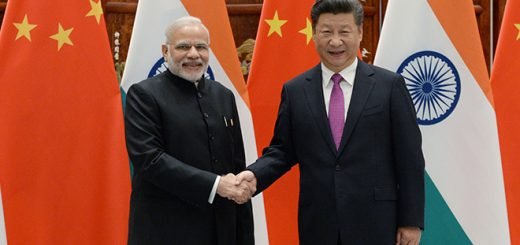The Evolving Geopolitics of the Indo-Pacific [Event]

Report on webinar by Fair Observer and United Services Institution
The Indo-Pacific has emerged as a contested issue with the return of geopolitics and great power competition. In the dominant strategic discourse on Indo-Pacific, the Fair Observer and United Services Institution (USI) organized a webinar on “The Evolving Geopolitics of the Indo-Pacific” on 30th October 2021 to provide insight into some of the current issues and events in the Indo-Pacific. Fair Observer is an independent, non-profit media organization based in US and United Services Institution (USI) is a national security and defence services think-tank based in New Delhi, India.
The session had the likes of Major General B.K Sharma (Retd.), Frederic Grare, Christopher Schell, and Vice Admiral Shekhar Sinha (Retd.). The session kicked off with a brief introduction of all the honourable panellists by Atul Singh.
General B K Sharma, the moderator for the session, set the stage for the discussion by sharing his understanding of the current situation of world politics and the emerging approaches to it. The forum started with the talk on the recent Quad summit held in Washington on 24th September 2021 and the significant takeaways from it. Christopher Schell called the Quad a value-based arrangement that focused on democratic values and rule of law. His understanding of the Quad meet was that it is more of a summit behind the scenes than a public announcement of coordinated efforts.

The webinar also discussed the AUKUS deal and its emergence, to which Frederic Grare responded by covering both the positive and negative aspects of the agreement. He stated that the AUKUS deal shows the US’s strong resolve on the China question and a welcome move in Europe. But he questioned the very intent of the U.S. given the lack of coherent and uncertain policies it has followed with its allies. He also expressed concerns over Australia’s security as there has been a considerable delay due to the overall reshuffling of the deal.
Further, the session’s focal point turned to India as a Quad member. Admiral Sinha enlightened this thought-provoking topic by the statement that “India has to fight its war” if there is one concerning its border tensions. He also shed light on the possible assistance that can be provided by Quad to India in cyber security and intelligence sharing domains through capacity building and platforms with the latest technology, which was visible during the Eastern Ladakh standoff. Admiral Sinha also gave his insights into Aukus by calling it a military alliance that will transfer sensitive technology from the U.S. to Australia, not impacting Quad. Further, he stated that the AUKUS deal is the outcome of the desire to overcome the lack of adequate naval components and marine naval equipment in the Indo- Pacific region.
General B.K Sharma also discussed the crucial issues related to the Taiwan-China conflict, Russia’s plans in the Indo-Pacific and others with Christopher Schell and Fredric Grare. From the panellists’ responses, General B.K Sharma concluded that a reliable mechanism and instrumentality will give rise to confidence-building measures in the region to address the strategic mistrust and to prevent conflict.
In the later part of the webinar Admiral Sinha expressed his views on China’s future strategy, where he clearly stated that China’s rigorous attempts are to create a Sino-centric system in the world. Admiral Sinha finished his response on a positive note by expressing his faith and confidence in the spirit of democracy and that arrangements like Quad, which are transparent and sustainable, will help tackle and resist the rise of China both militarily and economically.

The panel also discussed the possibility of cooperation between the US and China and also the middle-power countries’ role in this rivalry. Fredric Grare drew attention to the narrowing options of dialogue and collaboration due to the rising tensions between the U.S and China. Also, he hoped that both parties realize the potential cost of its rivalry very soon. He suggested the middle-power countries should find a way to change the narrative and engage China in norms of behaviour that are more acceptable;
The last part of the webinar focused on drawing key tenants for balancing China’s rise and its strategy. Christopher Schell and the rest of the panellists marked a strong response by saying that China understands the language of force because they always fail to live up to its promises. Christopher Schell and Vice Admiral Sinha spoke about the need to increase naval operability with smaller countries, build infrastructure, protect, expand, and transfer technology through cooperation via arrangements like AUKUS and Quad.


















